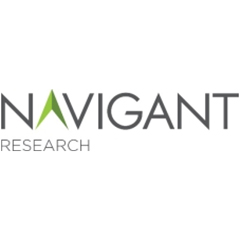Distributed energy resources and government support are accelerating adoption and growth
April 1, 2019 – Boulder, CO – A new report from Navigant Research analyzes the key trends, drivers, and barriers to adoption of smart grid and DER technologies within the utility industry across Southeast Asia.
Mirroring much of the developed world, Southeast Asia is fundamentally transforming its electric power system to adopt a smart grid framework. While the market has been slow to develop, this is changing due to demographic factors like urbanization, population growth, and consumption patterns. Click to tweet: According to a new report from @NavigantRSRCH, Southeast Asia’s future grid revenue is expected to grow from approximately $5.5 billion in 2018 to nearly $13.0 billion in 2027 at a compound annual growth rate (CAGR) of 9.7%.
“In Southeast Asia, utilities span the spectrum of the future grid evolutionary curve,” says Michael Kelly, research analyst with Navigant Research. “Countries like Vietnam and Indonesia are just beginning their journeys, where others, like Malaysia and Singapore, have become regional innovators.”
Market forces like DER and government support are also helping to move most of the region beyond simple electrification schemes and basic IT infrastructure deployment. As Southeast Asia’s transformation continues, long-term, established smart grid roadmaps are growing more popular, and increased spending is expected in the distributed generation and utility IT and analytics markets.
The report, FutureGrid: Southeast Asia, analyzes the key trends, drivers, and barriers to adoption of smart grid and DER technologies within the utility industry across Southeast Asia. The study provides an overview of grid architecture and future grid applications, and a discussion of country-level dynamics and adoption trends. Markets include Indonesia, Malaysia, Philippines, Singapore, Taiwan, Thailand, Vietnam, and the Rest of Southeast Asia. The report also examines several submarkets within the smart grid space. An Executive Summary of the report is available for free download on the Navigant Research website.
About Navigant Research
Navigant Research, the dedicated research arm of Navigant, provides market research and benchmarking services for rapidly changing and often highly regulated industries. In the energy sector, Navigant Research focuses on in-depth analysis and reporting about global clean technology markets. The team’s research methodology combines supply-side industry analysis, end-user primary research and demand assessment, and deep examination of technology trends to provide a comprehensive view of clean, intelligent, mobile, and distributed energy. Additional information about Navigant Research can be found at www.navigantresearch.com.
About Navigant
Navigant Consulting, Inc. is a specialized, global professional services firm that helps clients take control of their future. Navigant’s professionals apply deep industry knowledge, substantive technical expertise, and an enterprising approach to help clients build, manage and/or protect their business interests. With a focus on markets and clients facing transformational change and significant regulatory or legal pressures, the Firm primarily serves clients in the healthcare, energy and financial services industries. Across a range of advisory, consulting, outsourcing, and technology/analytics services, Navigant’s practitioners bring sharp insight that pinpoints opportunities and delivers powerful results. More information about Navigant can be found at navigant.com.
* The information contained in this press release concerning the report, FutureGrid: Southeast Asia, is a summary and reflects Navigant Research’s current expectations based on market data and trend analysis. Market predictions and expectations are inherently uncertain and actual results may differ materially from those contained in this press release or the report. Please refer to the full report for a complete understanding of the assumptions underlying the report’s conclusions and the methodologies used to create the report. Neither Navigant Research nor Navigant undertakes any obligation to update any of the information contained in this press release or the report.



























